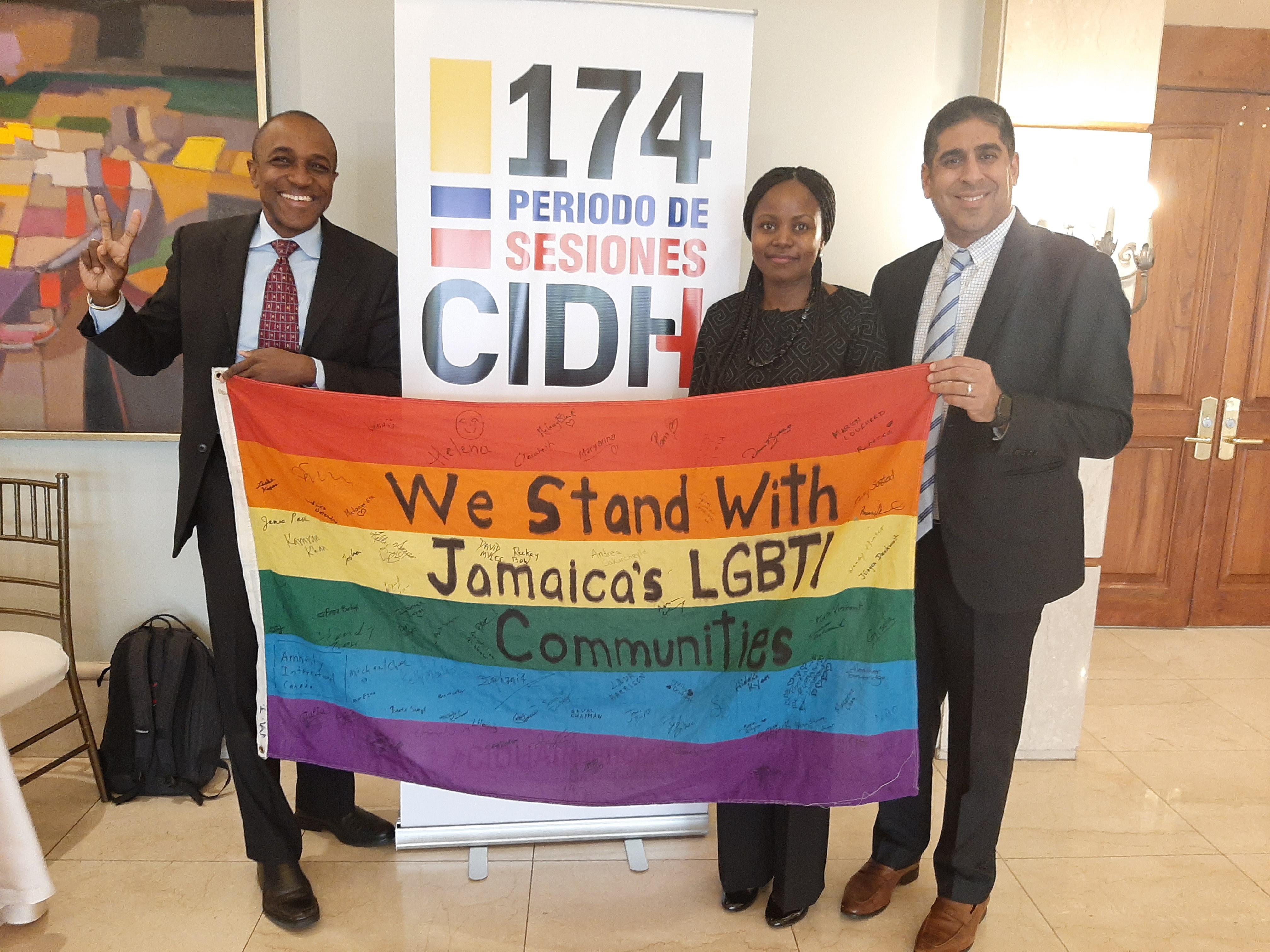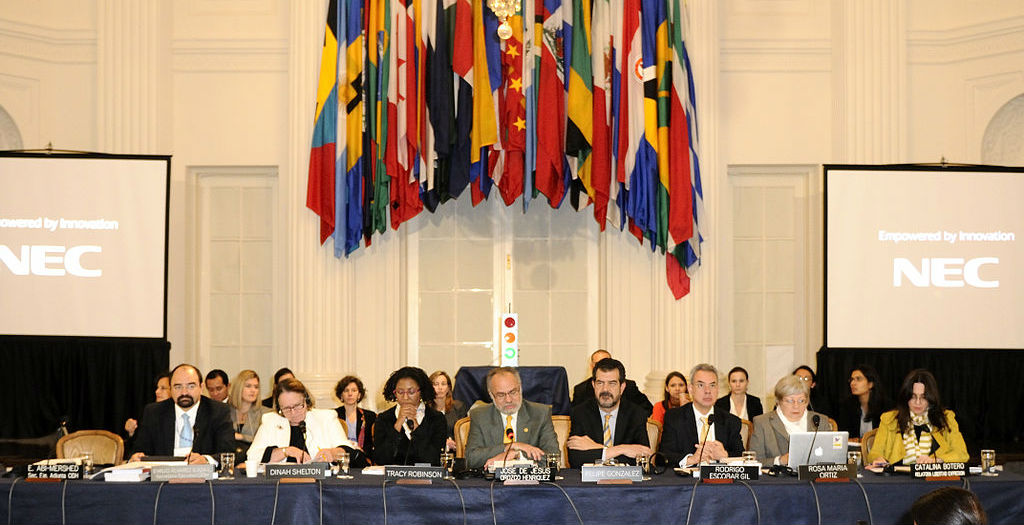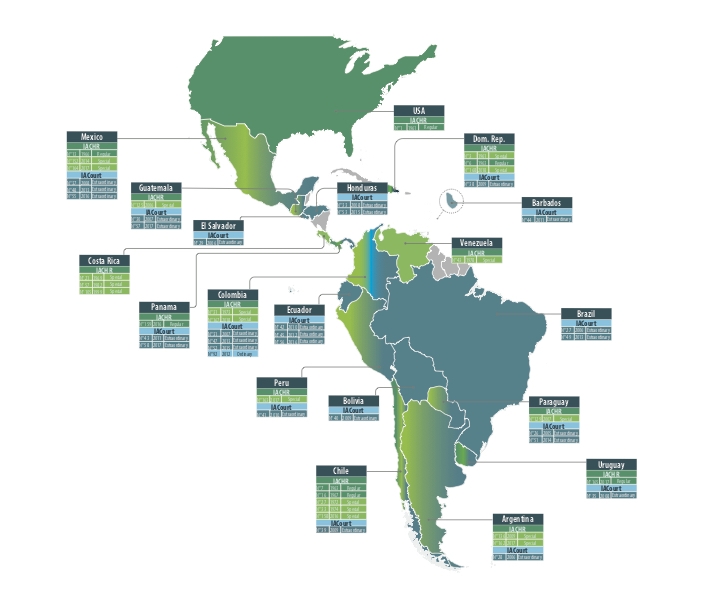Challenge to Jamaica’s anti-sodomy law gets a warm reception
Colin Stewart is a 45-year journalism veteran. He is the…
A legal challenge to Jamaica’s anti-sodomy law met with an encouraging reception last week at the Inter-American Commission on Human Rights (IACHR). In contrast, a similar challenge before the Supreme Court of Jamaica has encountered stiff opposition.

The petitioners said the IACHR commissioners “made comments affirming the human rights arguments presented to them” on behalf of two Jamaican plaintiffs who argue that their lives have been disrupted and jeopardized by the anti-sodomy law.
In response to commissioners’ questions, Maurice Tomlinson, Jamaican attorney-at-law and senior policy analyst with the Canadian HIV/AIDS Legal Network, described several obstacles encountered by his own Jamaican constitutional case against the anti-sodomy law:
“Tomlinson noted that the Supreme Court of Jamaica barred the Public Defender from supporting his case, despite allowing nine religious groups who oppose the matter to be joined as interested parties. In addition, the Jamaican government indicated (on November 7, 2019) that it would not address the human rights arguments raised by Tomlinson’s case but would only argue that the anti-sodomy law was ‘saved’ from judicial review by the constitution’s ‘Savings Law Clause,’ which seems to suggest that only Parliament can change certain laws.

The Canadian HIV/AIDS Legal Network, AIDS Free World and Thompson Hine LLP issued this press release about the Nov. 11 hearing:
Challenge to anti-sodomy law in Jamaica heard by the Inter-American Commission on Human Rights
This petition builds on the global push for decriminalisation of LGBT people.
On November 11, 2019, Sarah Bosha, legal and research advisor from AIDS-Free World, Maurice Tomlinson of the Canadian HIV/AIDS Legal Network, and Samir Varma, partner with the U.S. law firm Thompson Hine LLP presented a petition before the Inter-American Commission on Human Rights (IACHR) on behalf of two gay Jamaicans challenging their country’s anti-sodomy law. The legal team argued that the law violates the American Convention on Human Rights, to which Jamaica is a state party. This petition was filed before the IACHR in 2011.
The IACHR noted with concern that the Government of Jamaica did not attend the hearing, nor provide a written response, despite being notified of the proceedings on October 4, 2019.

On behalf of the petitioners, who were anonymously identified as A.B. and S.H. over concern for their safety, the legal team argued that various human rights violations — including the right to health, the right to family, and the right to equality and non-discrimination — were violated by the continued existence of Jamaica’s anti-sodomy law. The IACHR provided the petitioners the privacy and confidentiality that they needed to tell their stories without the fear of violent backlash or having their families’ safety and security threatened in Jamaica.
Generally, the Commissioners made comments affirming the human rights arguments presented to them on behalf of A.B. and S.H. They acknowledged the following:
I. There is a direct violation of the rights to equality and non-discrimination.
II. Excluding LGBT people from public health services presents a serious challenge to their right to health.
The Commissioners reiterated that IACHR hearings are an important means of seeking justice for victims, which may include some form of reparations and must always include a commitment by the offending state to not repeat the violations. The Commissioners raised questions to understand whether the Jamaican government had taken or was taking any action to address the violations against the LGBT community. They also asked about the status of the ongoing domestic constitutional challenge to the anti-sodomy law at the Supreme Court of Jamaica.
Maurice Tomlinson, Jamaican attorney-at-law and senior policy analyst with the Canadian HIV/AIDS Legal Network, who is also the claimant in the domestic challenge, explained that a remedy in Jamaica was uncertain. He pointed to his constitutional case against the anti-sodomy law — which began in 2015 and remains unresolved — as an example. Tomlinson noted that the Supreme Court of Jamaica barred the Public Defender from supporting his case, despite allowing nine religious groups who oppose the matter to be joined as interested parties. In addition, the Jamaican government indicated (on November 7, 2019) that it would not address the human rights arguments raised by Tomlinson’s case but would only argue that the anti-sodomy law was “saved” from judicial review by the constitution’s “Savings Law Clause,” which seems to suggest that only Parliament can change certain laws.
Importantly, there were some positive takeaways regarding future action and engagement on the part of the IACHR regarding the anti-sodomy laws in Jamaica. At the close of the presentation of the evidence, the IACHR Special Rapporteur on the Rights of LGBTI Persons, Ms. Flavia Piovesan, gave a statement of support and commitment to ending discrimination against LGBT people in the Caribbean, and specifically in Jamaica. She promised to engage the Jamaican government to ensure that they prioritize and address the human rights of LGBT people, and any violations of those rights.
The Commission is expected to issue its report and recommendations on the petition within two months.
Link to hearing: https://www.youtube.com/watch?v=ZCw-r5b5lks
Related articles:
- Activist petitions for right to same-sex marriage in Jamaica (
- Archive of this blog’s articles by and about Maurice Tomlinson
- Archive of this blog’s articles about the Inter-American Commission on Human Rights and the Inter-American Court of Human Rights




